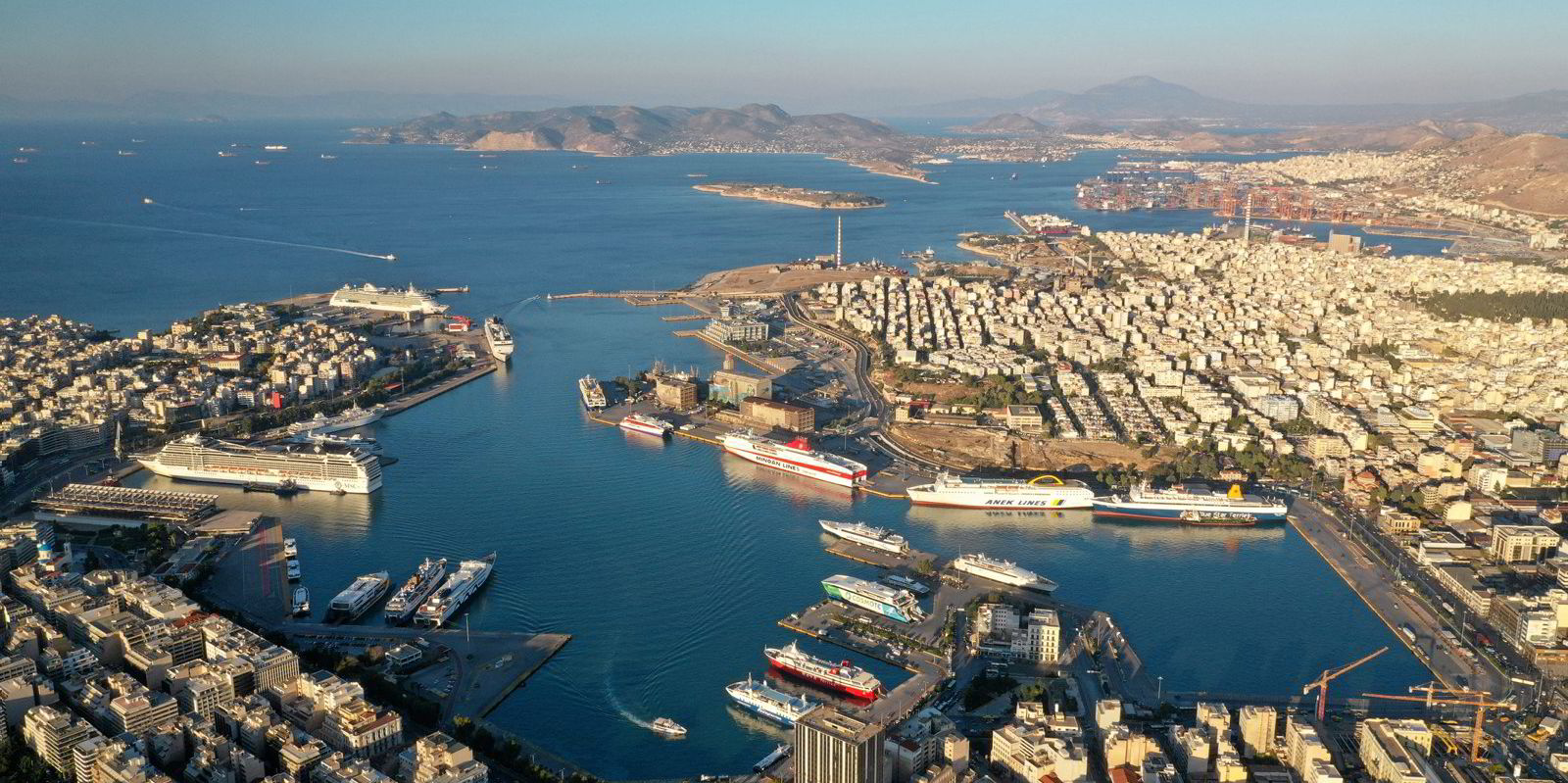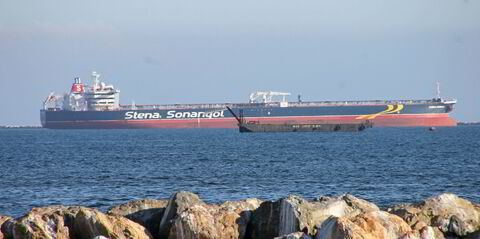Greek auctioneers have postponed the electronic auction of a 25-year-old containership scheduled to take place in Piraeus on Wednesday.
According to sources following the process, a new date for the sale of the 1,042-teu Mekong Spirit (built 1996) is expected to be set shortly, with the auction likely rescheduled to take place by the end of the year.
Amid booming containership markets, potential buying interest for the Polish-built vessel that has been idling since 2017 at the Greek port of Lavrion has been “most intense”, TradeWinds has been told.
When ultimately sold, the ship is expected to beat the minimum reserve price of $2.5m set by the auctioneers.
The Mekong Spirit is being sold on behalf of Sweden's SEB Bank, which owns a $56.1m preferred mortgage on the vessel and seeks to recoup about $10.5m from the ship's former owners, Lumar SA.
Just a formality?
According to sources, the reason for the auction's postponement was that documentation needs to be updated to include information on a separate claim on the ship put forward by the Greek government.
Greek coastguards arrested the Mekong Spirit in May 2017 as it was crossing the country's territorial waters because it was suspected of violating United Nations and European Union sanctions against Sudan.
Last year, a Greek court dismissed the smuggling allegations and cleared the crew of all related charges, as TradeWinds reported.
According to the sources, Greek government lawyers have argued that the Mekong Spirit should pass automatically under state ownership since its original owners — Lumar — failed to take possession of the ship within six months of the 2020 court ruling.
It remains to be seen whether the government's claim constitutes anything more than a formality. In any case, it is hard to see how Lumar could have retaken control of the Mekong Spirit, since it was the vessel's very detention that caused the company to default on its SEB loan.
Lumar is no longer active.
Alexey Dircenko, the company's owner, is in detention in Madrid as Spanish prosecutors have launched a separate investigation into the case — regardless of the Greek court ruling that found the ship's cargo of explosives to have been for civil use and fully complying with sanctions.



